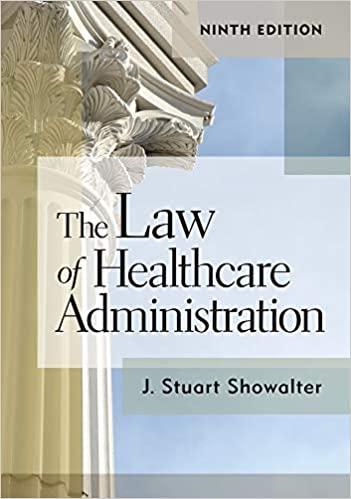This case touches a sensitive and important area of human rights. Oklahoma deprives certain individuals of a
Question:
This case touches a sensitive and important area of human rights. Oklahoma deprives certain individuals of a right which is basic to the perpetuation of a race—the right to have offspring. Oklahoma has decreed the enforcement of its law against petitioner, overruling his claim that it violated the Fourteenth Amendment. Because that decision raised grave and substantial constitutional questions, we granted the petition for certiorari.
The statute involved is Oklahoma’s Habitual Criminal Sterilization Act. That Act defines an “habitual criminal” as a person who, having been convicted two or more times for crimes “amounting to felonies involving moral turpitude,” either in an Oklahoma court or in a court of any other State, is thereafter convicted of such a felony in Oklahoma and is sentenced to a term of imprisonment in an Oklahoma penal institution. Machinery is provided for the institution by the Attorney General of a proceeding against such a person in the Oklahoma courts for a judgment that such person shall be rendered sexually sterile. Notice, an opportunity to be heard, and the right to a jury trial are provided. The issues triable in such a proceeding are narrow and confined.
If the court or jury finds that the defendant is an “habitual criminal” and that he “may be rendered sexually sterile without detriment to his or her general health,” then the court “shall render judgment to the effect that said defendant be rendered sexually sterile” by the operation of vasectomy in case of a male, and of salpingectomy in case of a female. Only one other provision of the Act is material here, and [it] provides that “offenses arising out of the violation of the prohibitory laws, revenue acts, embezzlement, or political offenses, shall not come or be considered within the terms of this Act.”
Petitioner was convicted in 1926 of the crime of stealing chickens, and was sentenced to the Oklahoma State Reformatory.
In 1929 he was convicted of the crime of robbery with firearms, and was sentenced to the reformatory. In 1934 he was convicted again of robbery with firearms, and was sentenced to the penitentiary. He was confined there in 1935 when the Act was passed. In 1936 the Attorney General instituted proceedings against him. Petitioner in his answer challenged the Act as unconstitutional by reason of the Fourteenth Amendment. A jury trial was had. The court instructed the jury that the crimes of which petitioner had been convicted were felonies involving moral turpitude, and that the only question for the jury was whether the operation of vasectomy could be performed on petitioner without detriment to his general health.
The jury found that it could be. A judgment directing that the operation of vasectomy be performed on petitioner was affirmed by the Supreme Court of Oklahoma by a five to four decision.
Discussion Questions
1. What does ex rel. mean in the caption of the case?
2. What does Justice Douglas mean when he talks about a “severability clause” in the statute?
3. The opinion takes pains to distinguish Buck v. Bell from the present case. Are you persuaded by Justice Douglas’s discussion, or has he effectively overruled Buck without saying so?
4. In the 1930s, Hereditary Health Courts were established in Nazi Germany to enforce sterilization laws on individuals suspected of hereditary diseases and other “defects.” See generally, Robert J. Lifton, The Nazi Doctors: Medical Killing and the Psychology of Genocide (Basic Books 1986), 22–44. Should forced sterilization—whether for eugenic reasons or otherwise—ever be allowed? If so, under what circumstances and controls?
Step by Step Answer:






